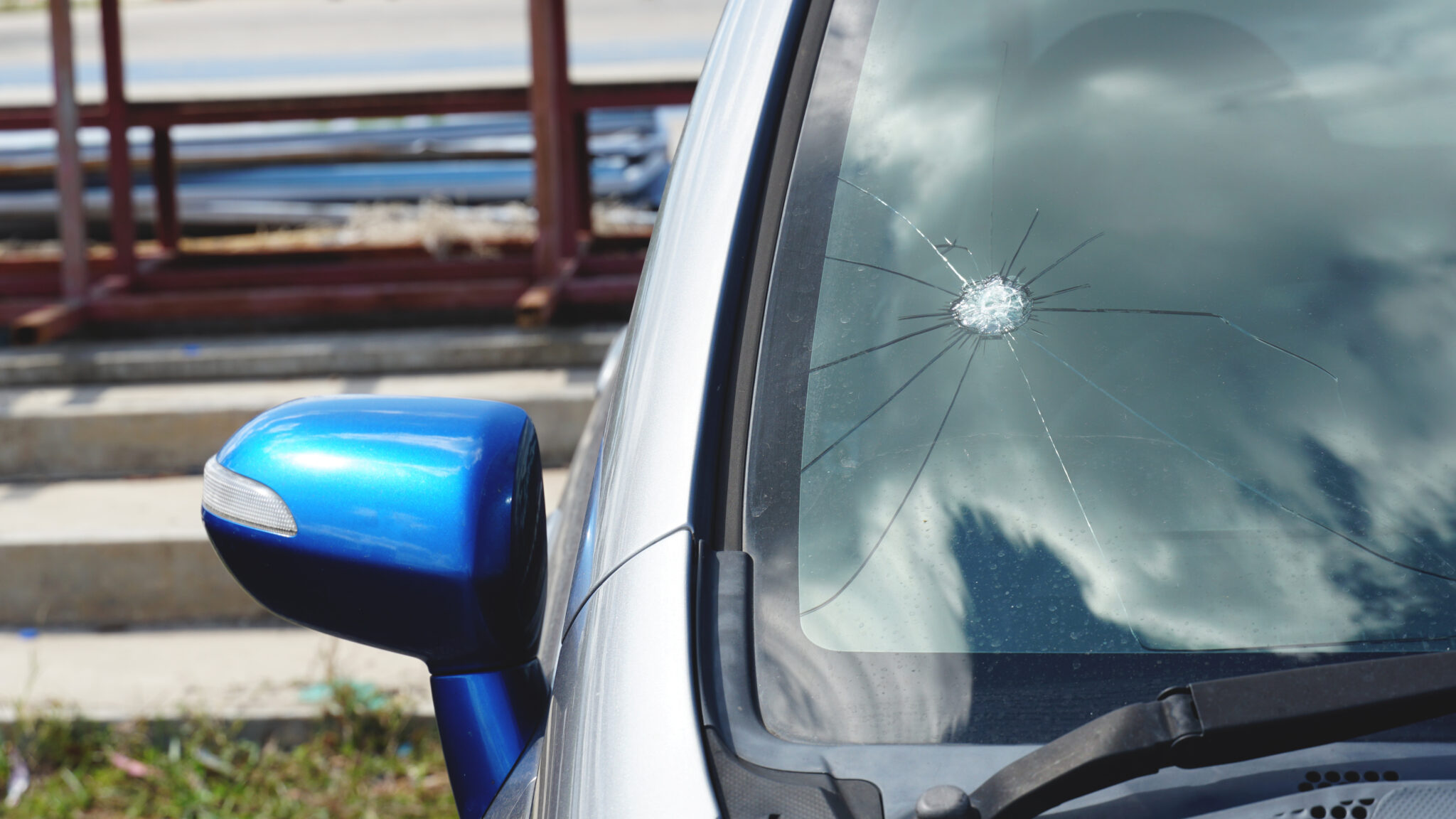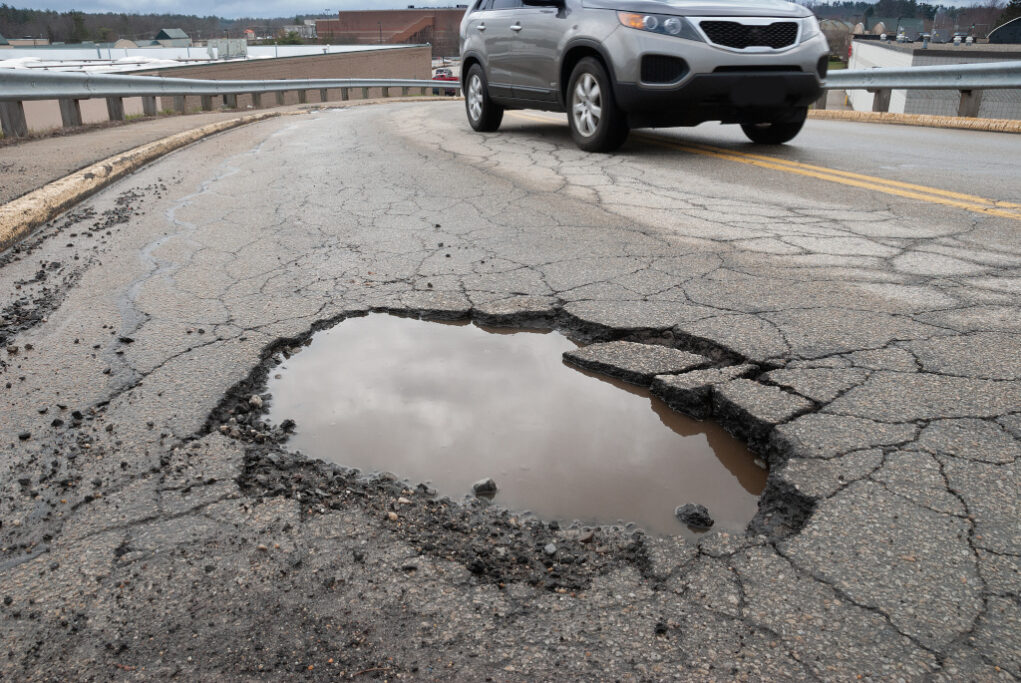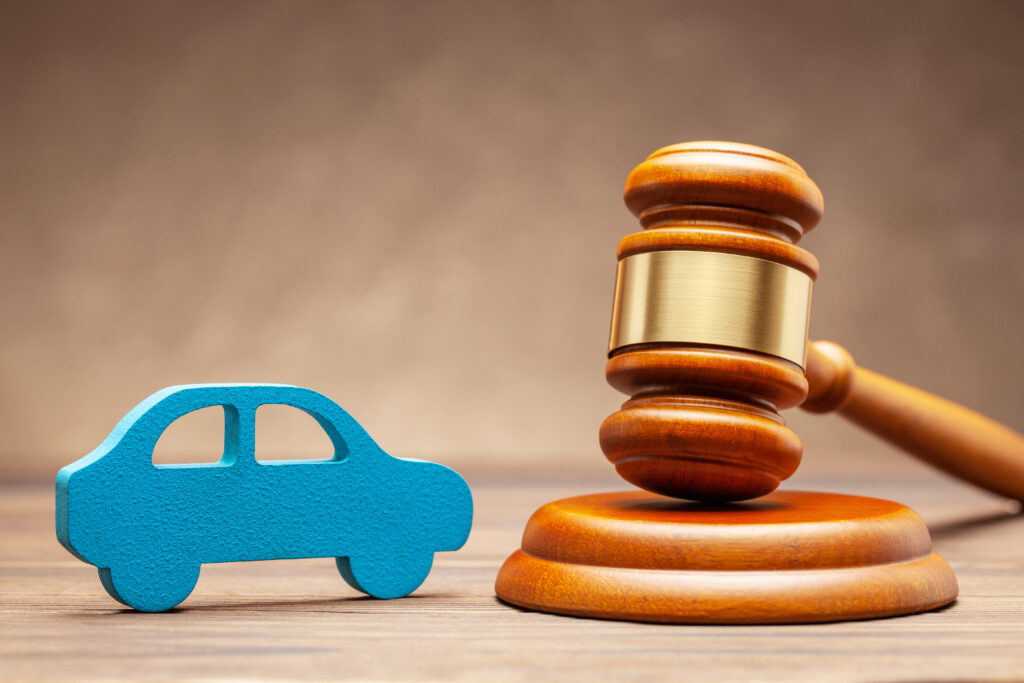Windshield damage is a common issue to happen to your car. You could be driving on the freeway and a rock from a dump truck could fly into your windscreen, leaving a ding or crack. If this happens, you shouldn’t put off repairs. Cracked glass can make it hard to see when you drive. In some states, the police could even give you a ticket if your visibility is blocked.
Window replacements can cost anywhere from $100 to $400, with repairs not far behind in price. Luckily, you don’t have to pay for a replacement or repairs in full if you have the right type of insurance. Having comprehensive on your policy is all you need to avoid paying out of pocket for repairs.
In this article, you’ll learn about what causes windshield damage and how to know if you should repair or replace it. We’ll talk about the type of auto insurance coverage you need to pay for repairs and what your deductible should be. You’ll also find out about how to file a claim and what that could mean for your rates.
Windshield Damage Causes
Windshield damage is one of the most common types of insurance claims. That’s hardly surprising when you consider how fragile auto glass is. But you may be surprised at how many different threats your car’s windscreen faces. Here’s a list of the main culprits:
- Road debris. Flying rocks, pieces of asphalt, and gravel are common causes of windshield damage. One of these could kick up off the ground or fly off a dump truck into your window, causing a ding or crack.
- Car accidents. A collision could break your windshield. The force of a car or other object crashing into yours could crack or shatter the glass.
- Hail. Golf-ball sized hail can cause serious damage to your windshield. Know that if you live in an area at risk of this type of hail, your windscreen could be ruined. People who live in risky areas for weather-related issues might need to consider comprehensive coverage more than others.
- Drastic temperature changes. Your car’s front window could crack if you live in an extremely hot or cold area, but then a sudden temperature change affects it. For example, pouring hot water on an a vehicle’s icy front windscreen.
- Low-quality glass or poor installation. This could happen if you’ve replaced your windshield or paid for cheap auto windows. Both can result in damages because the windscreen may not be properly set up or the glass is prone to breaking easily due to its quality.
Different Types of Windshield Damage
There are different types of windshield damage. Each form may require a different type of repair or even a full-on replacement. Below are the most common types:
- Cracks. This is a crack that may spread. Any of the above causes could lead to cracking in your glass.
- Pitting. Pits in your windshield are small craters on your glass due to debris, such as sand or dust. Craters from this type of debris can build up and completely block your visibility. This is especially true if the sun shines and reflects off it.
- Ding or chip. This is usually a small dent on your windshield. Rocks and other flying debris can cause this. Dings can result in cracking if you don’t address them right away.
Should You Repair or Replace It?
Once you assess what type of damage you’re facing, you’ll likely wonder whether you need to replace your windshield or not. This depends on a few different factors. Here are the instances where you need a replacement:
- It’s tempered and not laminated
- There’s a crack longer than a dollar bill
- The crack is extending to the outside edge of the glass
- The crack goes deep into the windshield.
Be sure to check with a glass repair company like Safelite if you’re unsure of whether or not you should replace your windshield. They’ll be able to inspect any damages and let you know what to do.
How Insurance Covers Your Windshield
Damage to your windshield is an annoying and often expensive problem. Comprehensive insurance can help you save stress and money in this situation. This coverage repairs your auto glass in any of these situations:
- Rocks or other debris causing damage
- Hitting a deer
- Natural disasters or weather damage e.g., hailstorms
- Vandalism
Collision insurance can also cover your windshield if you get into an accident. This includes collisions with cars or objects. If another driver is at fault, their liability pays for repairs. That said, comprehensive is your go-to for vehicle window damage. Drivers with all three coverages are fully protected.
How High to Set Your Deductible
One of the things you’ll need to consider is how high you should set your comprehensive deductible. Raising your deductibles will lower your monthly rates. Having them too high could also mean you’ll need to pay for your windshield repairs out of pocket if they cost less than your deductible. This is something you should discuss with your agent to ensure you’re making the right decision. You can also get a quote to find out how much adjusting your deductible affects your rates.
Full Glass Coverage
This is a type of coverage on your auto insurance policy that covers windshield damage without you having to pay a deductible. This is a good idea if you live in an area with a high risk for broken vehicle glass, such as one that has a lot of natural disasters or vandalism.
Keep in mind that full glass coverage is a policy add-on that’s separate from comprehensive. It’s optional but could come in handy at some point. This is also smart because if you have comprehensive insurance and the deductible costs more than the repairs, you’ll have to pay for it yourself. This ensures that you won’t have to do that.
How to File a Claim
The first step if you have a broken or cracked windshield is to either file a claim or get a quote from a glass repair service. You shouldn’t wait to address the issue because the damage could get worse. Driving with broken car windows is also a safety risk. Filing a claim is a straightforward process. You can either call your provider or file online.
You could also get a quote from a local auto windshield repair company. They’ll be able to tell you how much a repair or replacement would cost. With this info, you’ll know if your deductible costs more than the repairs or not. If your policy has full glass coverage, you can make a claim right away with your insurer.
Will Filing a Glass Claim Raise Your Premium?
This is a question that many people ask when they’re wondering if they should file a claim. The answer depends on your insurance company. One glass claim likely won’t impact your rates that much. But you can’t be sure unless you speak with your insurer. Having several claims in a short time frame can result in your rates seeing a rise.
Insurance companies will also pay attention to your claim record when deciding if they should raise your rates. If you’ve had several claims leading up to this new one, your rates could rise.
What If You Don’t Want to File a Claim
You can explore paying for the damages yourself. This is a good option if you think your rates will rise. It’s also a smart idea if your deductible is high. You’d end up paying for it yourself anyway in that situation.
Frequently Asked Questions
Does auto insurance cover windshield cracks?
Yes, your insurance provider will cover cracks. Comprehensive coverage will pay for all types of windshield damage, such as:
- Cracks
- Dings and chips
- Pitting
Full glass coverage will also cover your damage. It’ll do this without requiring you to pay a deductible.
What if someone vandalized my car and shattered the windscreen?
This is something that your comprehensive insurance will cover. This coverage takes care of theft and vandalism. Your full glass coverage will also take care of this. This is because vandalism is a random event that you had nothing to do with.
Will a glass claim cause my insurance to go up?
This depends on a few things. First, your insurer is the one who decides whether or not this will happen. You should talk to them about what this claim will do to your rates. Also, having a record with lots of claims will mean your rates will likely go up.
You shouldn’t avoid fixing your windshield because you think that your rates will go up. In some states, driving with this type of damage is illegal. It’s also a safety risk to you. If you can’t file a claim because your rates will go up, there’s always the option to pay for it yourself. Always try to fix windscreen problems as soon as you can.


